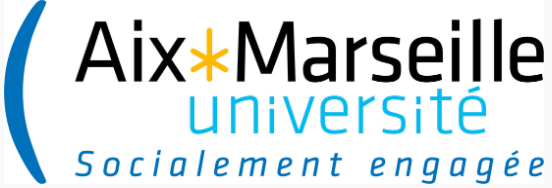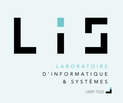|
5 videos available for this event!
|
19th International Conference on Relational and Algebraic Methods in Computer Science (RAMICS 2021)
19ème Conférence internationale de méthodes relationnelles et algébriques en informatique (RAMICS 2021)
2 – 5 November, 2021
|
Steering Committee
Comité de direction Peter Jipsen (Chapman University) |
Organizing Committee
Comité d’organisation Uli Fahrenberg (École Polytechnique) |
|
Program Committee
Comité de programme |
|
Bahareh Afshari
Christel Baier Manuel Bodirsky Ignacio Fabregas Uli Fahrenberg Marcelo Frias |
Hitoshi Furusawa
Mai Gehrke Silvio Ghilardi Roland Glueck Walter Guttmann Peter Höfner |
Ali Jaoua
Peter Jipsen Sebastiaan Joosten Laura Kovacz Tadeusz Litak Roger Maddux |
Dale Miller
Martin Muller Daniela Petrisan Damien Pous Georg Struth Sam van Gool Michael Winter |
|
Since 1994, the RAMiCS conference series has been the main venue for research on relation algebras, Kleene algebras and similar algebraic formalisms, and their applications as conceptual and methodological tools in computer science and beyond.
Theoretical aspects include semigroups, residuated lattices, semirings, Kleene algebras, relation algebras, quantales and other algebras; their connections with program logics and other logics; their use in the theories of automata, concurrency, formal languages, games, networks and programming languages; the development of algebraic, algorithmic, category-theoretic, coalgebraic and proof-theoretic methods for these theories; their formalisation with theorem provers. Applications include tools and techniques for program correctness, specification and verification; quantitative and qualitative models and semantics of computing systems and processes; algorithm design, automated reasoning, network protocol analysis, social choice, optimisation and control. |
La série de conférences RAMiCS est, depuis 1994, la rencontre internatio-nale principale pour les chercheurs qui étudient les algèbres de relations, les algèbres de Kleene, et d’autres systèmes algébriques similaires, outils
conceptuels et méthodologiques en informatique et dans d’autres domaines. Les aspects théoriques couverts par la conférence incluent les semi groupes, les treillis résidués, les algèbres de Kleene, les algèbres de relations, les quantales et d’autres types de systèmes algébriques ; leurs connexions avec les logiques des programmes et d’autres logiques ; leur utilisation dans les théories des automates et des langages formels, de la concurrence, dans les jeux, réseaux et langages de programmation ; le développement de méthodes algébriques, algorithmiques, catégoriels, coalgébriques, de systèmes de preuve pour ces formalismes algébriques ; leur formalisation dans les démonstrateurs automatiques. Les applications incluent les outils et les techniques de preuve de correction des programmes, la spécification et la vérification des programmes ; les modèles quantitatifs et qualitatifs, la sémantique des systèmes et processus computationnels ; la conception d’algorithmes, le raisonnement automatique, l’analyse de protocoles dans les réseaux, le choix social, l’optimisation et le contrôle. |
Marcelo Frias (Instituto Tecnológico de Buenos Aires) Relational Tight Field Bounds for Distributed Analysis of Programs
Dmitriy Zhuk (Lomonosov Moscow State University) Quanti ed Constraint Satisfaction Problem: towards the classi cation of complexity
Barbara König (University of Duisburg-Essen) Fixpoint Games
Contributed talks
Callum Bannister (University of Queensland) E ect Algebras, Girard Quantales and Complementa- tion in Separation Logic
Rudolf Berghammer (University of Kiel) Experimental Investigation of Su cient Criteria for Relations to Have Kernels, Relational Computation of Sets of Relations
Matteo Bianchi (University of Milan) Amalgamation property for varieties of BL-algebras generated by one chain with nitely many components
Cameron Calk (Laboratoire de l’Informatique de l’Ecole) Abstract Strategies and Coherence
Cédric De Lacroix ( Laboratoire d’informatique et système ) Generalizing Girard quantale in a symmetric closed monoidal category
Amina Doumane (CNRS, ENS-Lyon) The class of representable semilattice-ordered monoids is not a variety
Sven Dziadek (EPITA) Greibach Normal Form and Simple Automata for Weighted !-Context-Free Languages
Uli Fahrenberg (EPITA) Languages of Higher-Dimensional Automata
Alexandre Fernandez (Université Paris-Est Créteil) Accretive Computation of Global Transformations
Wesley Fussner (University of Bern) Some modal and temporal translations of generalized basic logic
Roland Glück (Deutsches Zentrum für Luft- und Raumfah) Isolated Sublattices and their Application to Counting Closure Operators
Walter Guttmann (University of Canterbury) Second-Order Properties of Undirected Graphs
Peter Jipsen (Chapman University) Algorithmic correspondence for relevance logics, bunched implication logics, and relation algebras via
an implementation of the algorithm PEARL
Stepan Kuznetsov (Steklov Mathematical Institute of RAS) Relational Models for the Lambek calculus with Inter- section and Unit
Christophe Lucas (ENS Lyon) Free Modal Riesz Spaces are Archimedean: a Syntactic Proof
Bernhard Möller (University of Augsburg) On Algebra of Program Correctness and Incorrectness
Jérémie Marquès (Laboratoire Jean-Alexandre Dieudonné) Polyadic spaces and pro nite monoids
Khyodeno Mozhui (Indian Institite of Technology Guwahati) On the Representation Number of Bipartite Graphs
Claudia Muresan (University of Bucharest, Faculty of Math) Subreducts and Subvarieties of PBZ*{lattices
Matthias Naaf (RWTH Aachen University) Computing Least and Greatest Fixed Points in Absorp- tive Semirings
Chad Nester (Tallinn University of Technology) A Variety Theorem for Relational Universal Algebra
Wolfgang Poiger (University of Luxembourg) Many-valued modal logic over a semi-primal algebra
Sergio Ramirez (Inria – Saclay Ile de France) Computing Aggregated Knowledge as the Greatest Lower Bound of Knowledge
Nicolas Robinson-O’Brien (University of Canterbury) Relation-algebraic Veri cation of Bor uvka’s Minimum Spanning Tree Algorithm
Luigi Santocanale (Aix-Marseille Université) Skew metrics valued in Sugihara semigroups
Simon Santschi (University of Bern) Time Warps, from Algebra to Algorithms
Ralph Sarkis (ENS de Lyon) Quotienting
a Monad via Projective Algebras
Yury Savateev (Birkbeck University of London) Deciding FO-de nability of Regular Languages
Jas Semrl (University College London) Domain Range Semigroups and Finite Representa- tions
Georg Struth (University of Sheffield) lr-Multisemigroups, Modal Quantales and the Origin of Locality
Melissa Sugimoto (Universiteit Leiden) Unary-determined distributive l-magmas and bunched implication algebras
Jana Wagemaker (Radboud University) On Tools for Completeness of Kleene Algebra with Hy- potheses
Michael Winter (Brock University) Change of Base using Arrow Categories, L-fuzzy Concept Analysis using Arrow Categories
Kangfeng Ye (University of York) Automated Reasoning for Probabilistic Sequential Pro- grams with Theorem Proving






